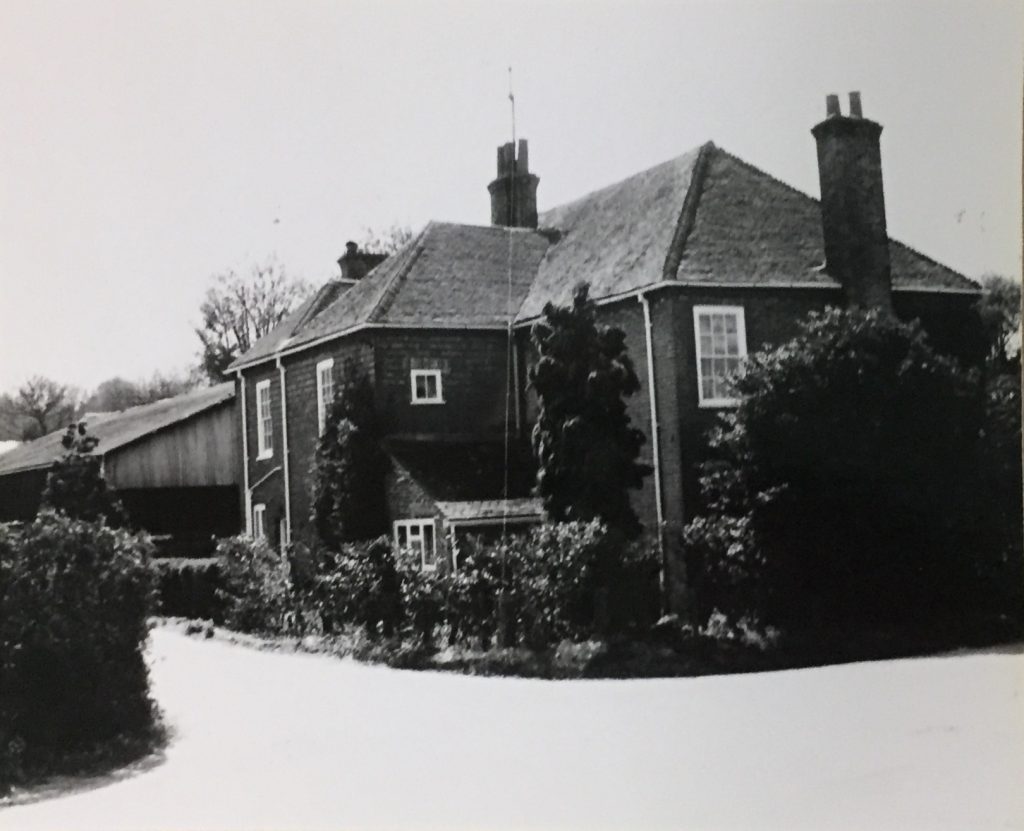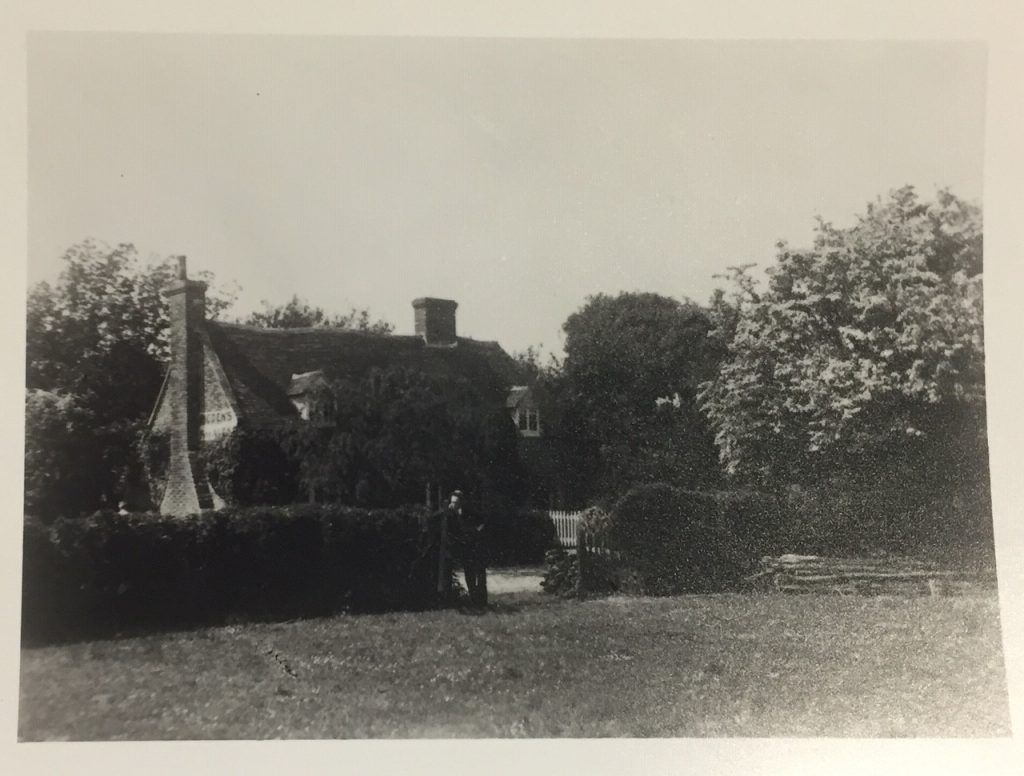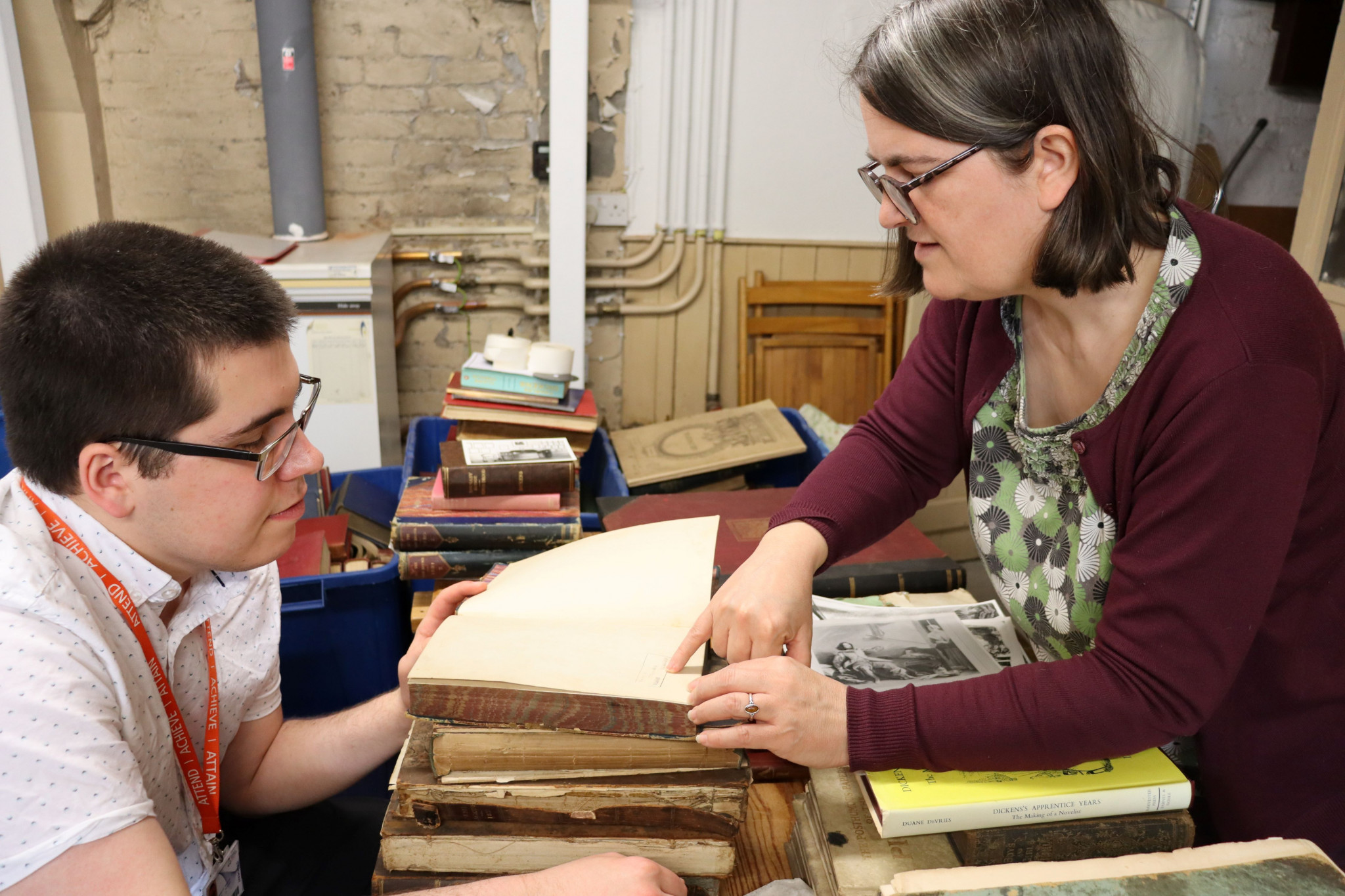If you’ve been following @kentmaps1 on X (Twitter), you may remember a picture of Michelle and American Studies student Michael in a basement, posing (let’s be honest) in full scholarly mode as they hover at an uncomfortable angle over an old rate book. This photo was taken moments before they found an entry for the lodgings of Marian Evans (George Eliot) who spent a holiday in Broadstairs in 1852. And this is the point – you just don’t know what you might find when you start delving into archives.
That is why in 2012 ICVWW began curating the archives of Victorian women authors such as Mary Braddon. In the last decade we have received generous donations of further collections: Henrietta Stannard, Hesba Stretton, Bessie Marchant; somewhere along the way we acquired Sarah Grand’s half-smoked cigarette (complete with ashtray).
But there’s an obvious problem, isn’t there? To make it into the ICVWW collections you have to be both Victorian-born and a woman. We wanted to tell more stories, and Kent was full of them!
Enter Kent Maps Online, a cross-period digital project researching and interpreting physical archives. This project has allowed us to flag up our own collections to researchers: Stannard and Grand both have Kent connections, and Marchant was as local as it comes. We also have a collection of books by children’s author G. A. Henty, as well as local fiction by Pamela Wynne, Russell Thorndike, J. S. Fletcher and Gabrielle Wodnil.

When local museums and history groups saw what we were doing, they wanted to help. The Folkestone & District Local History Society let us use images from their website, the Dickens Museum invited us to create a short film.
We are also grateful to Marrin’s Bookshop in Folkestone who allowed us to photograph hundreds of maps and pictures, subsequently donating rare material relating to Kent author Jocelyn Brooke.

We now have close to 300 entries on the site, a number of them based on our own archives. This research teaches us every day to think again about what ‘shared history’ really means: the historic figures we are interpreting were often divided, and some remain divisive. But the university’s special collections allow us to ask critical questions, based on the material record. And this year, thanks to the Being Human Festival, ICVWW is inviting you to a free cooking event in Margate with one of our local (sort of) Victorian authors. Who knows, you just might find something ‘New’ to see you through the winter…
Professor Carolyn Oulton
 Faculty of Arts, Humanities and Education
Faculty of Arts, Humanities and Education Caroline Holden
Caroline Holden 1371
1371


